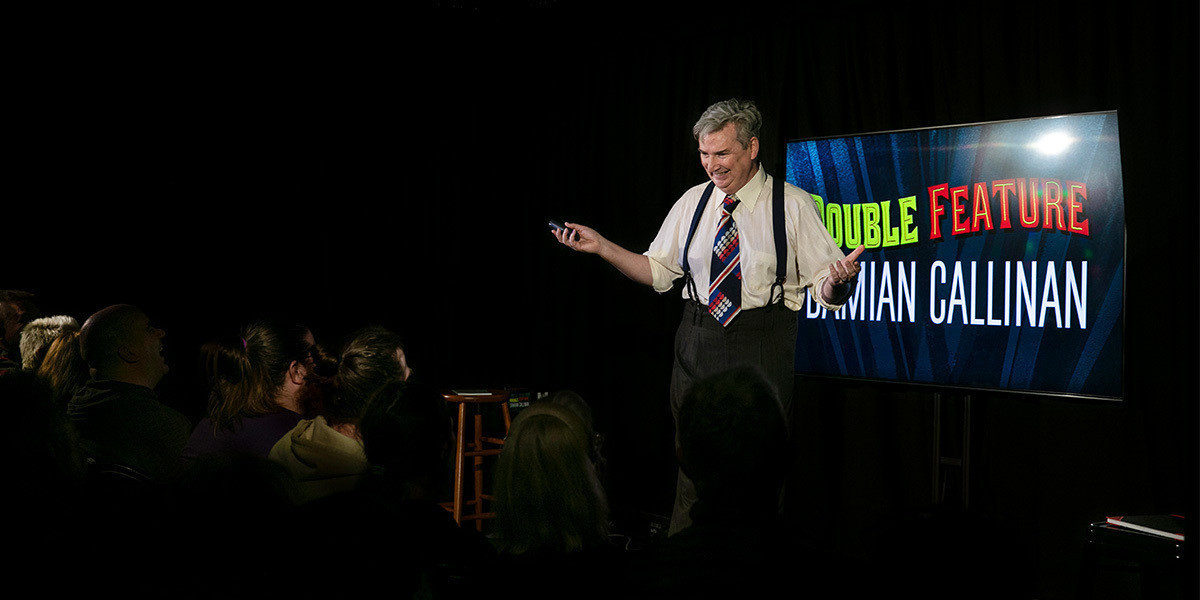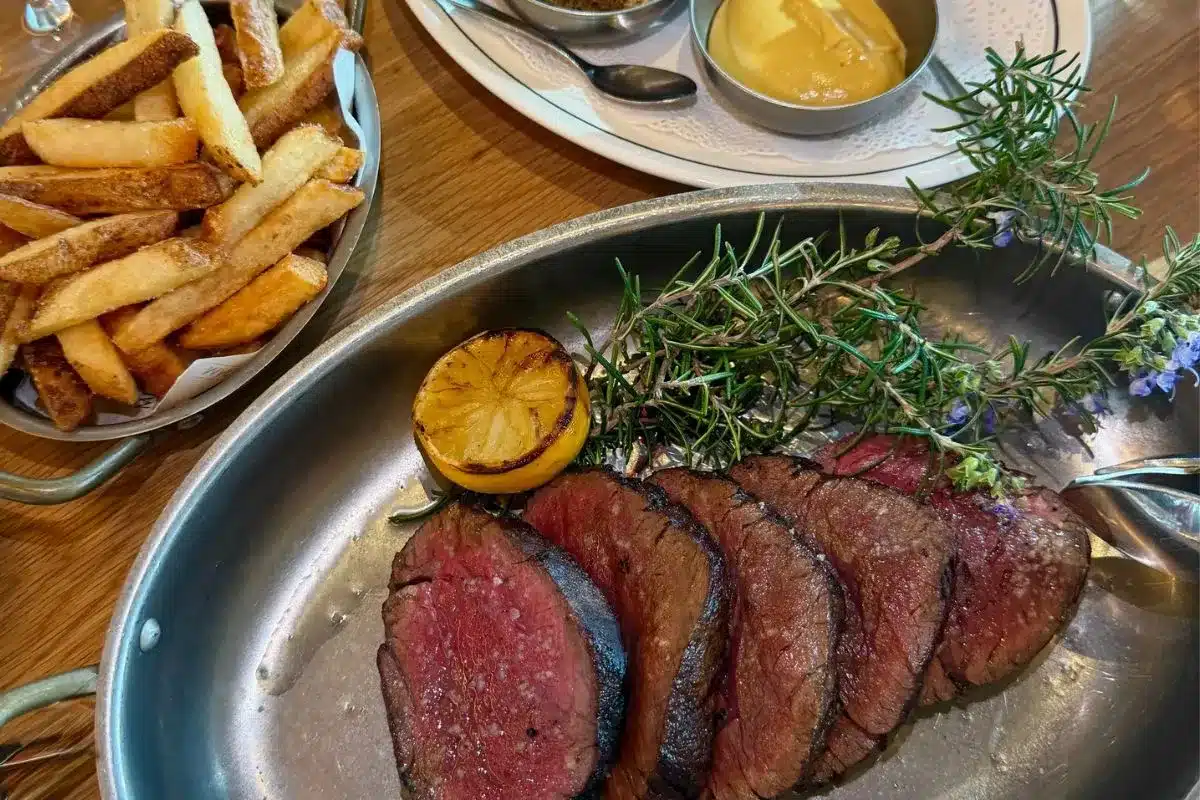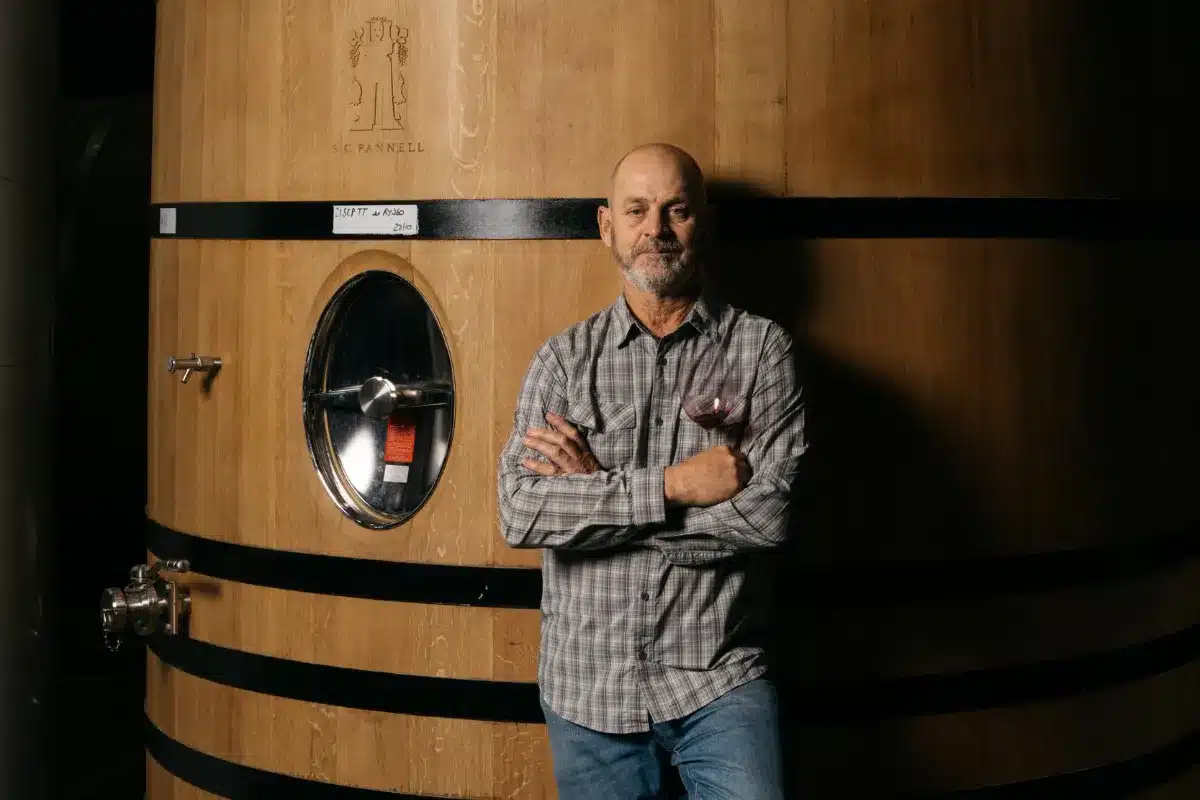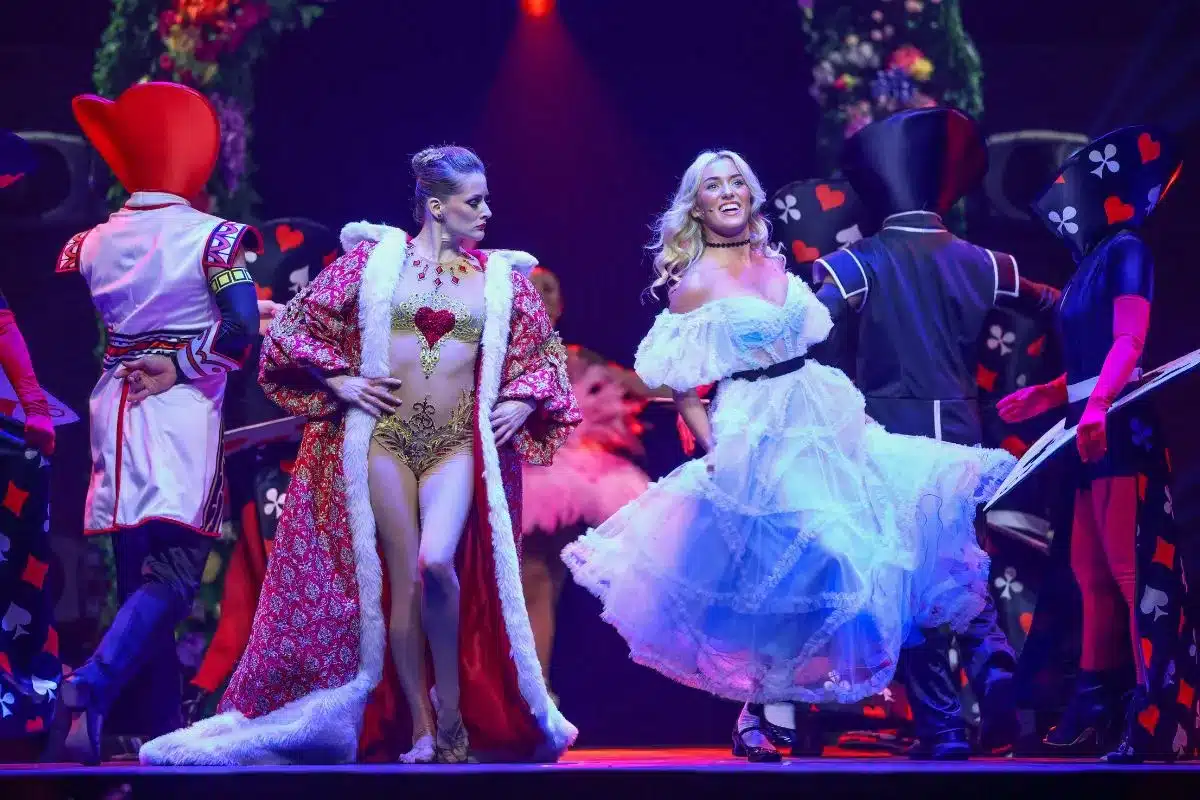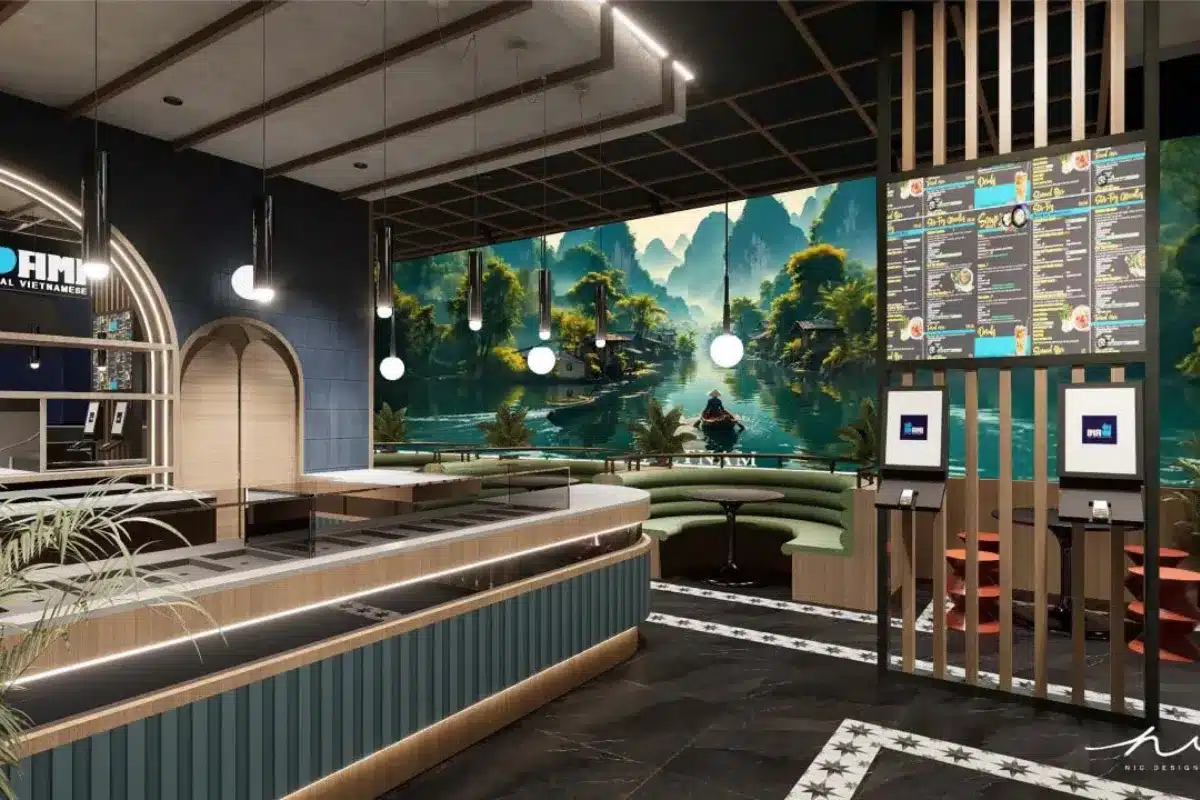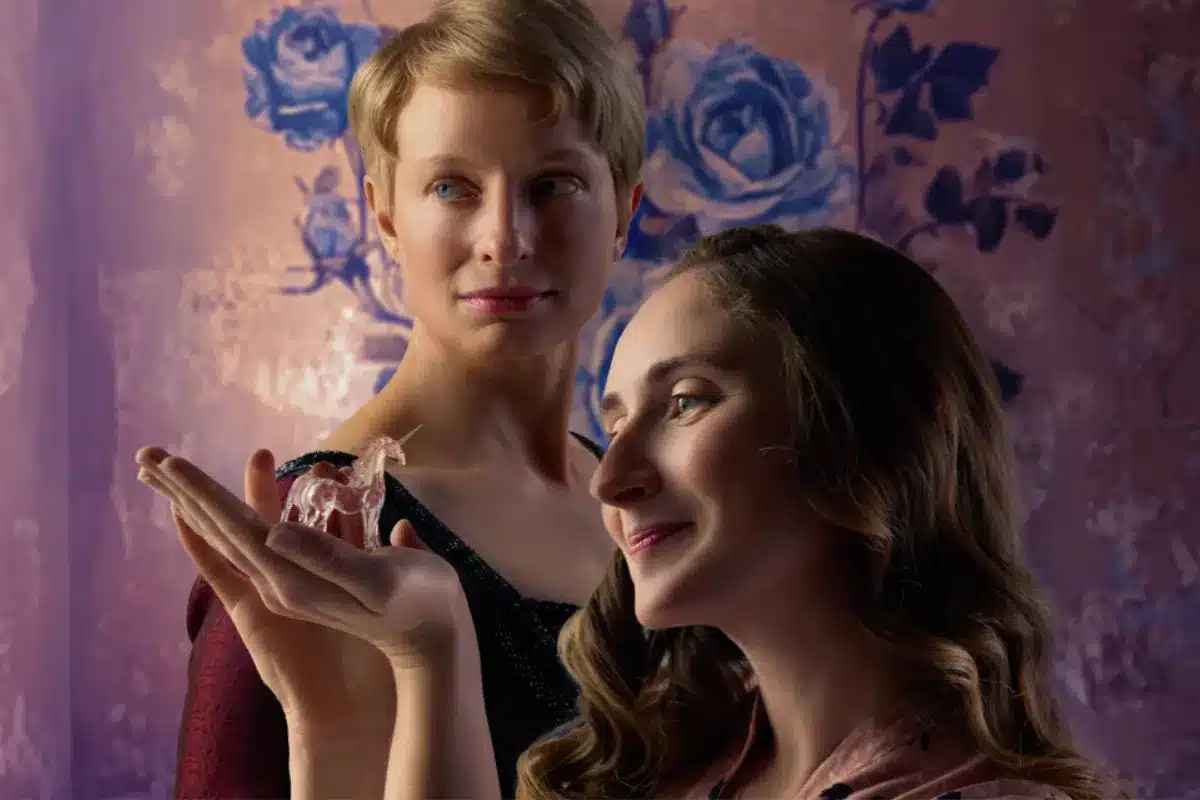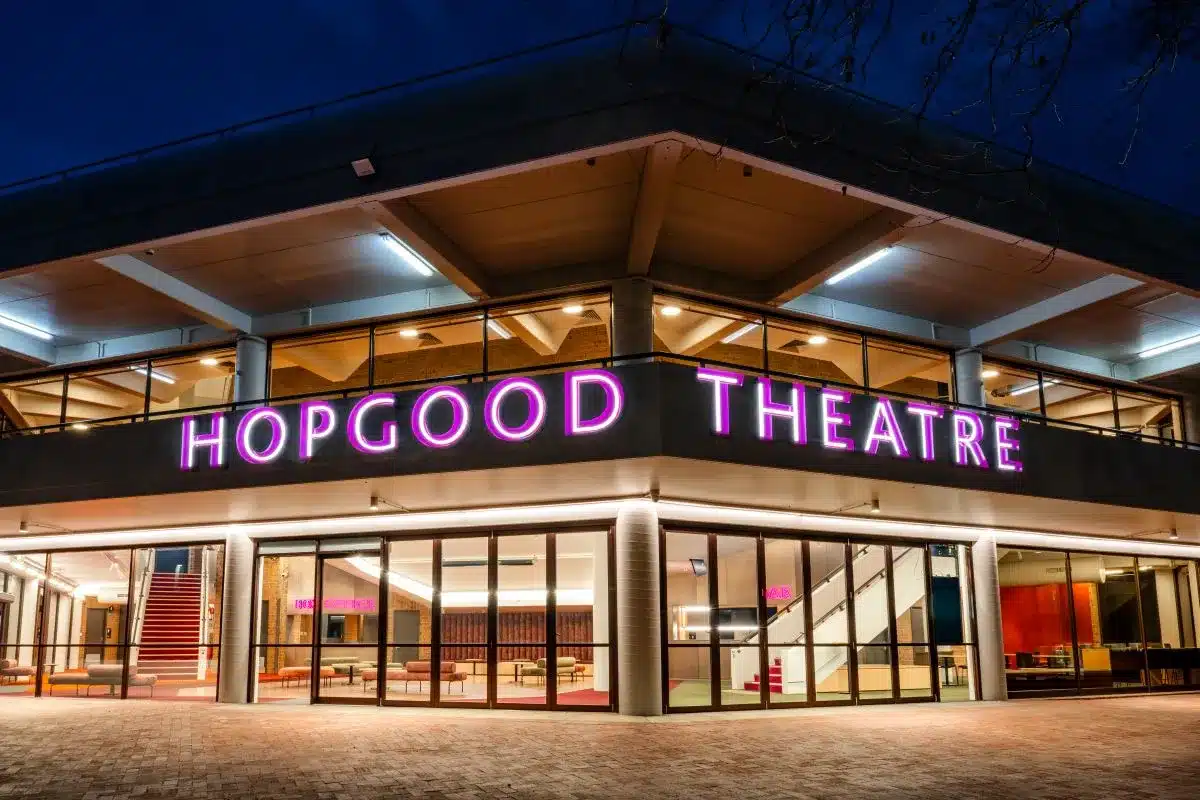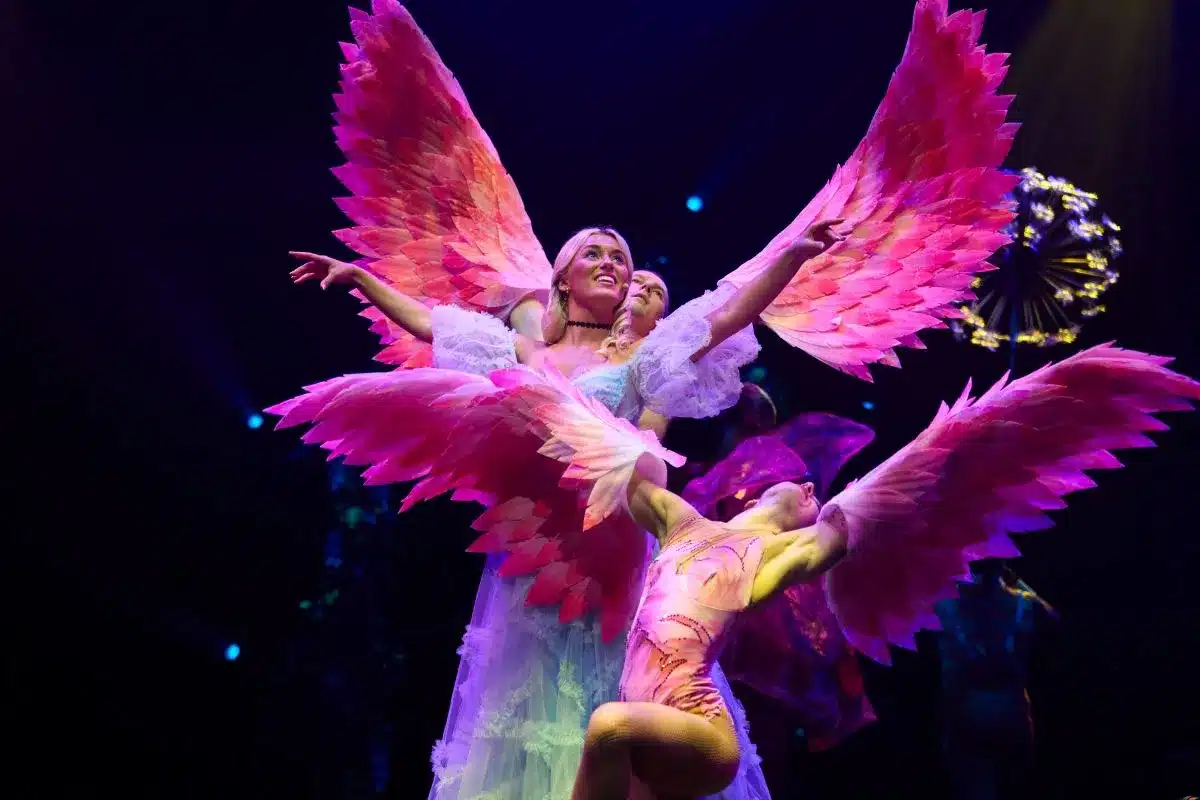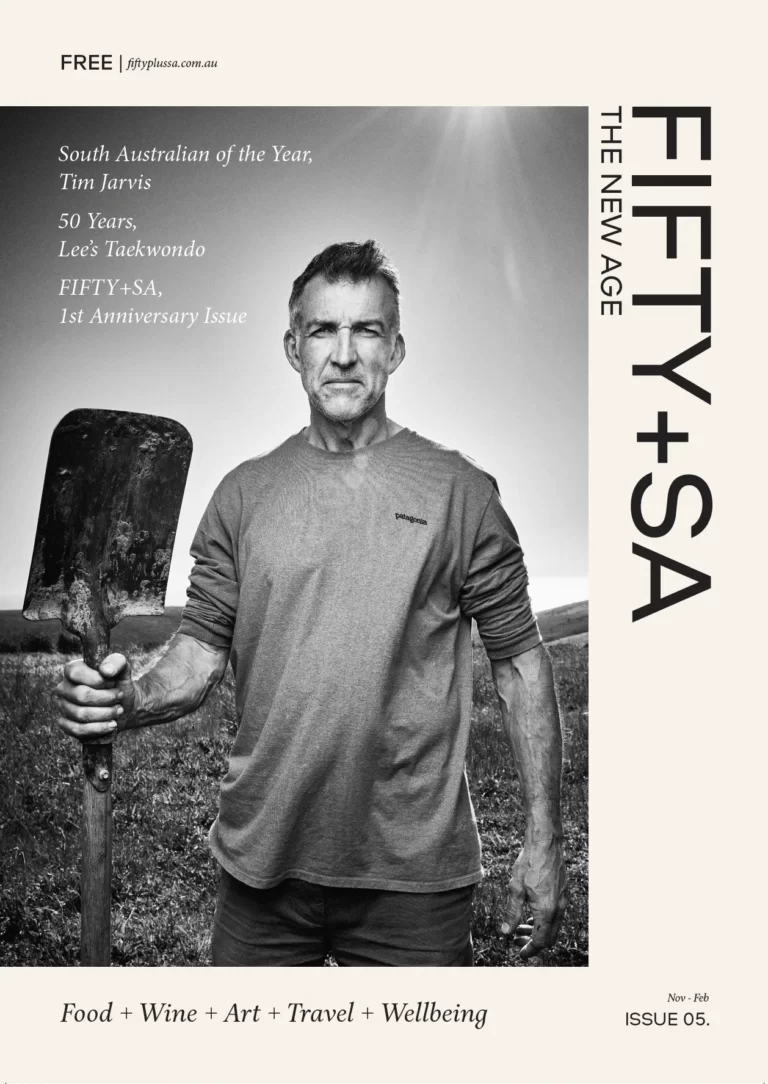Damian Callinan, Australian actor and comedian, three-times Barry Award nominee, and the creator and star of the Netflix hit film The Merger uses his powerful gift for storytelling to recast his parents in a funny and poignant double feature of love and loss.
The surprise discovery of his mother’s 1946 diary leads Damian on a cinematic, romantic romp through post-WW2 Australia. We chat with him ahead of the opening show at the Adelaide Fringe on 17 February.
Can you tell us more about when you came across your parents’ diary and journal and what your initial reactions were?
On the night of dad’s funeral in 2018, my sister dragged out a box that contained 23 volumes of what my siblings and I referred to as ‘The Retirement Diaries’. The man had lived a rich and varied life: WW2 veteran, school principal, amateur actor etc, but he had chosen to only document the least interesting part of it.
Annette decided that I was the one most likely to take the deep dive into the tomes, so the box was dumped at my feet to take home. We started looking through the box and that’s when we discovered that obscured within, was a slim pamphlet sized diary written by mum in 1946: the year that she met dad.
I began reading extracts to my family and the young versions of our parents materialised before our eyes. With them both gone, we were gifted this new suite of memories from their first meeting that charted the first flush of their love.
I knew straight away that I would do something with it theatrically, but for the time being we just swooned hearing their romance through the eyes of a love stricken 19 year old.
Can you talk about the process of turning your mother’s journal and father’s diary into Double Feature?
It wasn’t until I began reading dads diaries that the full show structure began to take shape. As mentioned, mum had quite the queue of suitors lining up, so I wanted to maintain the suspense of whom she ends up with.
However, I loved the idea of introducing the audience to the older couple via dad’s diaries, so I deliberately don’t mention his name to maintain the sense of anticipation.
Can you share any challenges you faced in bringing your parents’ stories to life on stage?
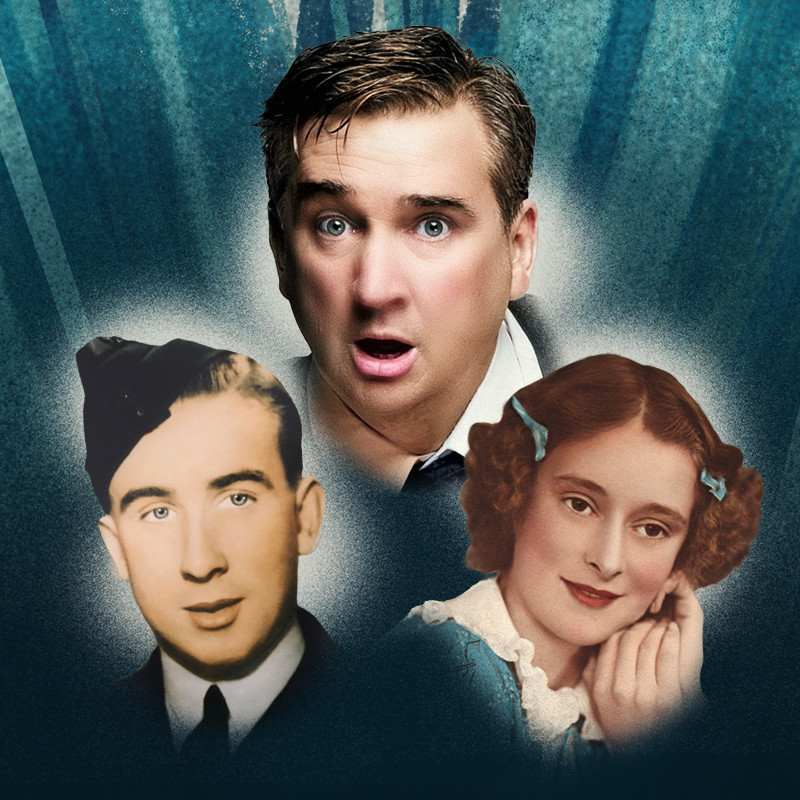
While dad’s diaries begin as comic relief, its pages also reveal the unspeakably awful tragedy that ended their 58 year marriage. I didn’t realise that he had diarised this event, so it was an emotionally gut wrenching to read his immediate thoughts as the heartbreak played out.
Undoubtedly the biggest challenge, as the writer and performer, is getting the balance right when introducing this element to the canvas. Nurturing the audience through this revelation after they’ve been constantly laughing for 45 minutes requires careful handling.
Being able to return to the 1946 part of the narrative provides a release valve and you can feel the mood lift as the denouement of the Hollywood romance plays out.
What was the transition like from creating the Netflix hit film The Merger to moving to the stage with this show?
The stage is my natural domain. The Merger actually began its life as a one man show. I was originally commissioned by Regional Arts Victoria & Vic Health to create a comedy show that addressed the issue of racism in rural communities.
I’d previously featured the Bodgy Creek community in an earlier solo show Sportsman’s Night, and it felt like a logical step to build The Merger story around that world.
The one-man show had a cinematic quality due to it being narrated by a young boy from the town with film making ambitions, who was making a documentary about the footy club. From the outset, audience members would comment that the show would translate well as a film. Eventually I listened to them and with the help of the film’s director Mark Grentell, we began applying for funding to make the adaptation.
It was a steep learning curve as, even though we knew the structure of the story worked, I had to undo all of the writing conventions that make a solo stage show work and take a crash course in screenplay structure.
Interestingly in moving back to writing for the stage, I’ve been applying many of the storytelling methods I’ve learnt from film. Double Feature is perhaps the most obvious blending of these worlds. My mum’s 1946 diary, which is the inspiration for the show, reads like a Hollywood romance. She also notates and sometimes reviews every title from every double feature she attended.
I embraced this and the conceit of the show is that I’m pitching to the audience what the movie version of the diary would be. We’ve actually filmed the beginning and end of the film in the very hall where my mum and dad had their first kiss. These scenes bookend the show.
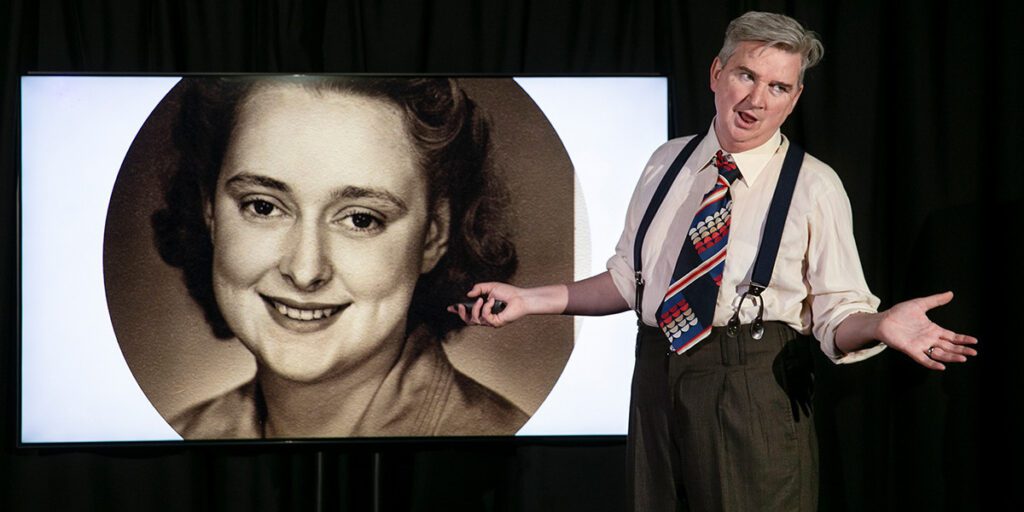
How would you describe the tone of the show, combining elements of love, loss, and humour?
The show is unswervingly nostalgic. From the moment the audience enter, I try to convey a sense that they are going to the movies in the late 1940’s. Big band swing music plays, and a newsreel rolls out before the main feature starts.
Using mum as the key protagonist in the story, with countless suitors in play, I keep the audience in suspense as to whom she might end up walking down the aisle. Dad’s retirement diaries are introduced as a split narrative and initially provide additional comic relief from the main plot.
By the time the tone shifts to pathos later in the show, the audience have already fallen for the lead actors.
How much creative licence is taken in the show, compared to the real-life events?
I used some creative licence in re-ordering some of the events and dates in the diary to help with the movie narrative, but as much as possible I kept their entries verbatim.
There are some obvious moments from mum’s diary where this isn’t the case when she directly addresses me, but largely they are her words. Emily Tomlins who voices mum has done an exceptional job to bring her to life.
What do you hope the audience will take away from Double Feature?
My aunty Margaret, mum’s sister, said ‘It felt like Kathleen was sitting next to me.’ I’ll take that.
The overwhelming response from audiences thus far has been that the show is heartfelt and heartwarming. I love telling their story and it’s a story worth telling.
Damian Callinan – Double Feature
17 February – 5 March 2023
Gluttony – Rymill Park

